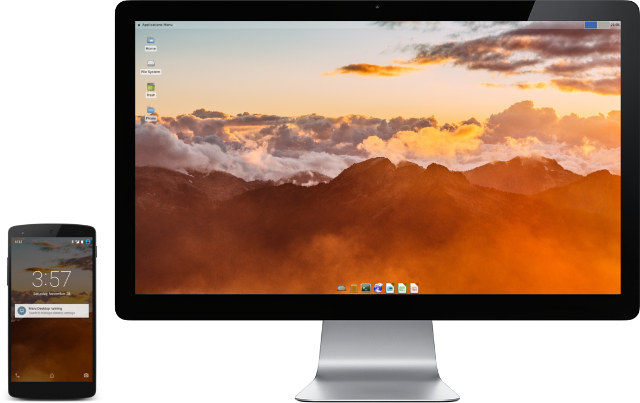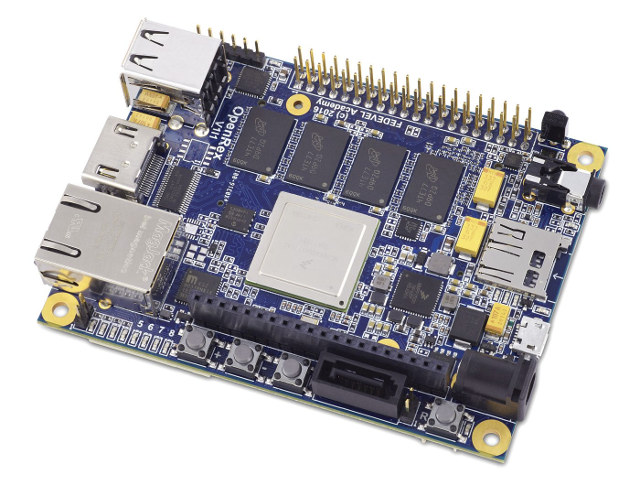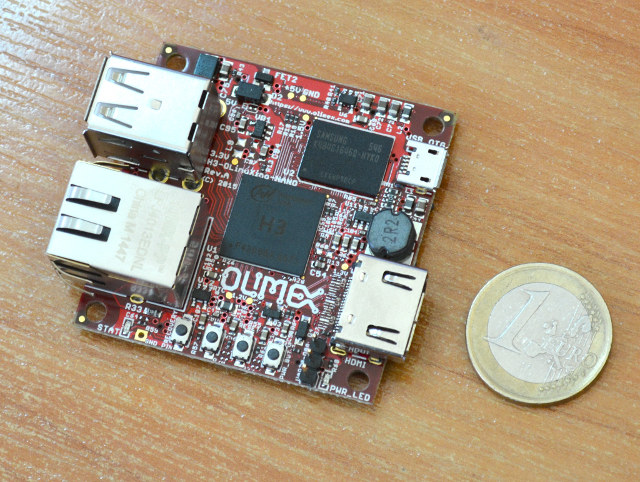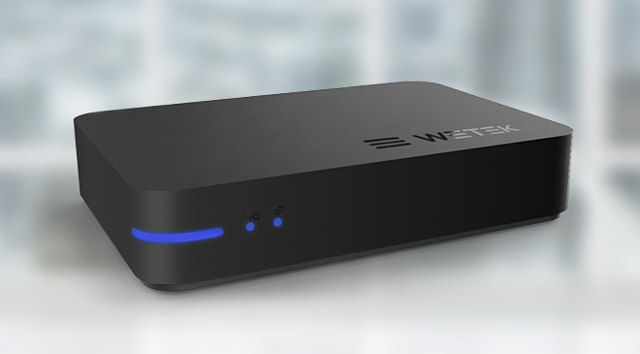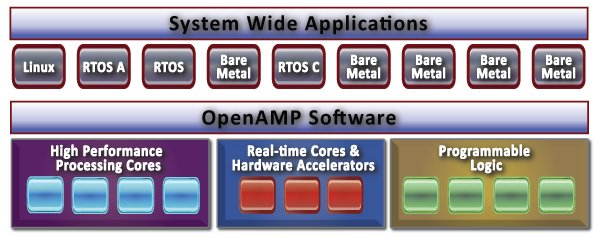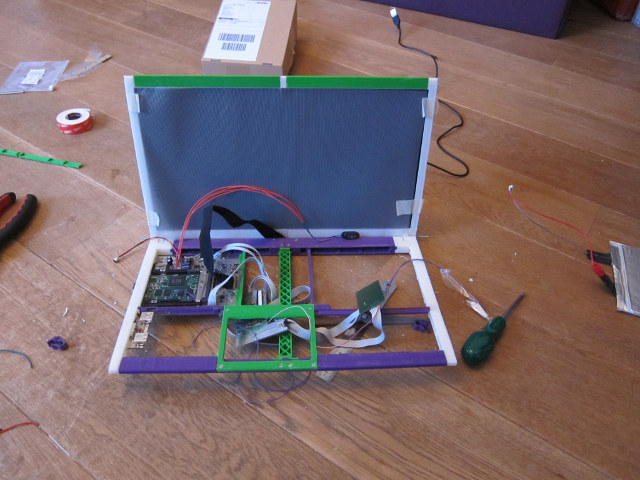There have been several news related to open source operating systems in the last couple of weeks including Maru OS to run Debian on Android, Zephyr Project real-time OS managed by the Linux Foundation, ReactOS an open source port of Windows XP, and Raspberry Pi boards are getting a Tizen 3.0 port, as well as a new Raspbian release. Maru OS – Mobile <-> Desktop Convergence Maru OS mobile operating system is supposed to do what Ubuntu convergence promised: it runs in mobile mode on the go with Android Lollipop mobile OS, once you connect the phone to an HDMI screen, and pair Bluetooth keyboard and/or mouse, it will switch to desktop mode running Debian Linux. The downside is that so far it a single developer (Preetam D’Souza) worked on it, and the beta version only works on Nexus 5 smartphone. However, since the project went viral, dozen of other […]
OpenRex NXP I.MX6 Open Source Hardware Board Design Files Released
OpenRex is an open source hardware board powered by NXP i.MX6 designed by Fedevel, and the company has announced the release of Altium project design files including both schematics and PCB layout source files, as well as manufacturing documentation. OpenRex board specifications: SoC – NXP i.MX6 processor @ up to 4 cores @ 1.2GHz with 2D and 3D GPU MCU – NXP LPC1345FHN33 ARM Cortex-M3 micro-controller System Memory – DDR3-1066 (533MHz) up to 4GB Storage – SATA, micro SD slot, 1x I2C EEPROM, 1x SPI FLASH Video Output / Display I/F – 1x HDMI up to 2048×1536 resolution, LVDS, parallel RGB display output, touchscreen connector (Optional 4x Analog input) Audio – HDMI output, 3.5mm stereo headphone jack, Camera – 1x Parallel CSI camera (shared with RGB output), 1x MIPI CSI connector compatible with Raspberry Pi (shared with LVDS) Connectivity – 1x 10/100/1000 Mbps Ethernet USB – 2x USB 2.0 host […]
Olimex H3-OLinuXino-NANO is a Smaller Allwinner H3 Board with HDMI, Ethernet, and Many I/Os
Allwinner H3 processor is quite popular in development boards thanks to some of Shenzhen Xunlong’s Orange Pi boards such as Orange Pi PC or Orange Pi One. However, some specific features may not work 0ut of the box, or are undocumented, so it’s always a plus when more companies create boards for a platform, and that’s exactly what Olimex has done with H3-OlinuXino-NANO, a board that’s smaller than any Orange Pi boards, the first open source hardware Allwinner H3 board on the market, and featuring many more I/O pins available. Olimex H3-OlinuXino-NANO specifications: SoC – Allwinner H3 quad core Cortex-A7 processor @ 1.2 GHz with Mali-400MP2 GPU System Memory – 512MB of DDR3 RAM Storage – micro SD card slot Video Output- HDMI up to 1080p60 Connectivity – 10/100M Ethernet USB – 2x USB host ports + 1x micro USB OTG port Expansion – Optional 2x 40-pin headers with GPIOs, […]
WeTek Play Now Supports OpenPLi Open Source Linux Distribution for DVB Receivers
WeTek Play satellite receiver was initially launched with Android and OpenELEC support, but the community started to provide other operating systems such as Ubuntu, Elementary OS, Lakka and Enigma 2, and the hardware is even used to receive educational materials or emergency info via satellite thanks to Outernet project. The device now support OpenPLi Linux based distributions for DVB receivers. If you want to try, you can download one of the latest images of OpenPLi for WeTek Play by loading the firmware onto an SD card. Bear in mind that official has just started so some features may not be implemented, and OpenPLi documentation specific to WeTek Play is basically inexistent. Support is available on the forums. If you want to get an idea about what OpenPLi is capable, you may however check out th list of specific features in the wiki, including PLi Movieplayer to allow you to playback […]
BayLibre ACME Cape for BeagleBone Black Measures Power and Temperature with Sigrok
Sigrok open source signal analysis software suite had a major release last week-end with libsigrok 0.4.0, libsigrokdecode 0.4.0, sigrok-cli 0.6.0, and PulseView 0.3.0. The new version added numerous bug fixes for supported hardware such as UNI-T UT61E digital multimeter or USBee AX Pro logic analyzer, and added support for several logic analyzers, oscilloscopes, multimeters, programmable power supplies, an electronic load, an LCR meter, a scale, and one BeagleBone Black cape, namely BayLibre ACME. The ACME initiative was launched in order to get rid of the limitations of proprietary solutions, and provide an open source hardware and software multi-channel power and temperature measurements solution to the community. BayLibre ACME cape supports up to 8 probes to measure VBUS (0 to +36V), VSHUNT ( 2.5uV up to 81.92mV), CURRENT AND POWER. Three current / power probes have been developed with all featuring TI INA226 for the ADC conversion: ACME HE10 Power Probe […]
NayuOS is a Developer Friendly Chromium OS Fork without Google Services
People at Nexedi, an European based open-source software publisher, are doing a lot of development work on Chromebooks, but with Chrome OS, all your data is kept on Google servers when you login, and by default the OS basically runs Chrome browser with barely any development tools. So the company leveraged Chromium OS, the open source version of Chrome OS, to create their own operating system, called NayuOS, that does not run any proprietary software, does without Google servers, and comes with git, nmp and other developer tools by default. The operating system should also provide a better Chromebook experience in China, thanks to the company’s re6stnet app and GrandeNet system allowing to have IPv6 available even when ISPs only provide IPv4, and to work around the unreliable Internet infrastructure in China. The source code and instructions to build an image yourself are available, but the company also released binary […]
OpenAMP Open Source Framework Provides the Glue between Linux, RTOS, and Bare Metal Apps in Heterogeneous SoCs
SoCs becoming more complex, and go beyond homogeneous multicore systems by mixing different type of cores such as high performance cores, low power real-time cores, or even FPGA fabric. Examples include NXP i.MX6 SoloX with an ARM Cortex A9 core for Linux apps, and an ARM Cortex M4 core for real-time tasks, or Xilinx Zynq UltraScale+ MPSoC with Cortex A53 core for higher level apps, Cortex R5 cores for real-time processing, and Ultrascale FPGA logic. All these different cores are running their own Linux based OS, real-time operating system or bare metal application, and all this makes software development an even greater difficult tasks. In order to reduce the complexity, and address some of the issues, the Multicore Association has launched a new working group targeting the management, expansion, and standardization of OpenAMP (Open Asymmetric Multi Processing), an open source framework that allows operating systems to interact within a broad […]
Rhombus Tech 15.6″ Libre Laptop is User-Upgradeable with EOMA68 CPU Cards
When the first Raspberry Pi model launched, there was just not enough boards to fill the demand, and as people kept waiting they were also investigating alternatives, and a growing community worked on Allwinner based platforms. At the time (2012), the main hardware project was EOMA68 CPU card using a PCMCIA connector, with ended up inside Improv development board, and aimed at providing user replaceable and upgradeable CPU cards. Sadly the initiative got some issues, and things did not quite work out as expected, but the person who launched the whole project, Luke Kenneth Casson Leighton (LKCL), did not give up on the idea, and has kept on working on EOMA68 standard with CPU cards from Allwinner and other SoC vendors. Recently, he’s been working on a Libre Laptop based on an Allwinner A20 EOMA68 CPU module, and will showcase the prototype at FOSDEM 2016 in Brussels this coming week-end. […]


